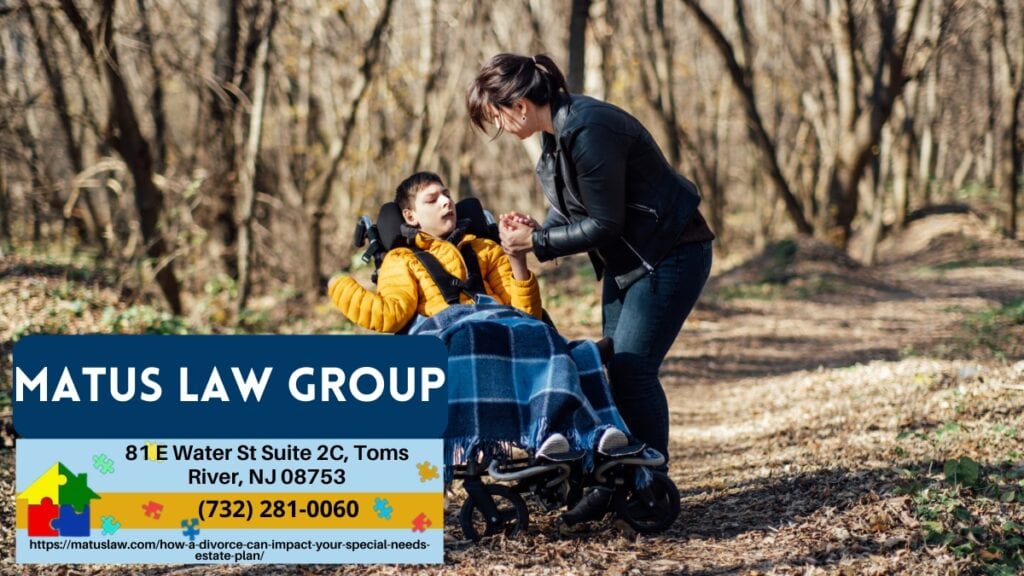Divorce always has a significant impact on estate planning, and after any divorce, it is important to rethink and reorganize your estate plan to reflect the fact that you are no longer married. However, the impact of divorce on an estate plan is even greater when you have a child with special needs.
During your divorce, basic agreements will be made regarding how you and your former spouse will share the financial responsibility of caring for your child with special needs. You will also have court orders for custody and visitation. But what will happen if either parent dies or becomes incapacitated? How will new issues created by the divorce settlement be addressed?
A knowledgeable New Jersey special needs trust attorney from The Matus Law Group can help address these important divorce and special needs considerations. With a deep understanding of estate planning and the unique challenges faced by families with special needs children, our team can guide you in creating a comprehensive plan that prioritizes your child’s well-being. We are dedicated to securing a stable future for your child. Contact us today at (732) 281-0060 to begin building a plan tailored to your family’s needs.
Child Support & Public Benefits
If your child receives public benefits such as Social Security Income, Medicaid, or a Medicaid Waiver, child support payments can impact their eligibility for these programs. In this case, it is ideal to create a self-settled, special, or supplemental needs trust for your differently-abled child and have the child support payments deposited directly into the trust. If handled properly by an estate planning attorney familiar with special needs matters, this can help you avoid a reduction in the available benefits.

Guardianship
If your special needs child is a minor, custody will be determined by the property settlement agreement in the divorce. However, if you care for your adult special needs child, you will need to initiate a guardianship proceeding to determine whether one or both of you will have the authority to address your adult child’s medical and housing needs. The court will also need to decide what will happen if the guardian dies or becomes incapacitated. Will the other parent take over? Someone else?
Life Insurance
If you get a divorce, you will need to review and likely make changes to any life insurance policies you may have. You can create a sub-trust as part of your will or a revocable living trust to benefit your special needs child and direct your life insurance proceeds there so the money can be used for your child’s benefit.
Beyond the basics listed above, there are many other considerations to address regarding your special needs estate plan during and after a divorce. While you should engage a divorce lawyer to represent your interests in the proceedings, partnering with an experienced New Jersey special needs trust attorney is also essential. The Matus Law Group is here to help. Call us at (732) 281-0060 to schedule a consultation.
| Aspect | Description |
|---|---|
| Child Support & Public Benefits | Child support payments may affect eligibility for public benefits like Social Security Income or Medicaid. |
| Guardianship | Determines who will manage the care and decisions for an adult special needs child. |
| Life Insurance | Life insurance policies may need updates to benefit the special needs child through a trust. |



